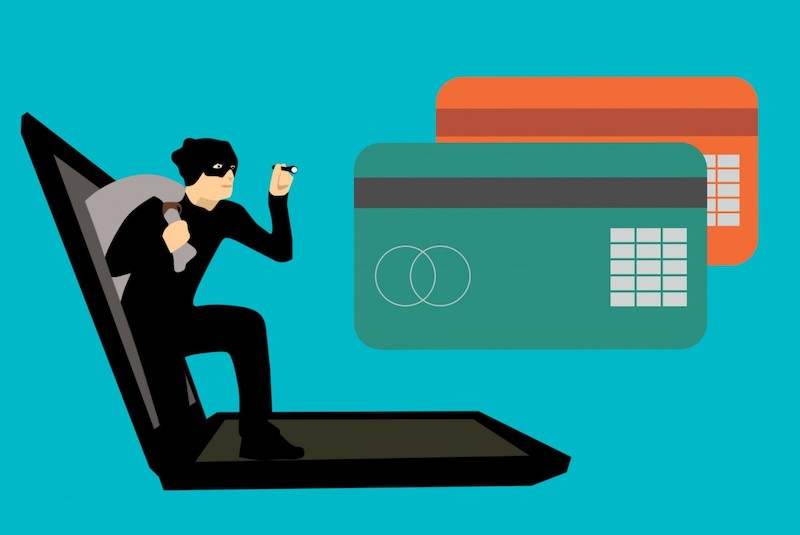No matter what line of business you’re in, having to convert a .doc file into a .pdf might be something you need to do on a frequent basis. If your office suite doesn’t support it, you’re forced to turn to an online converter to do the job for you.
Online converters are convenient, web-based (meaning you can use them on every device with a browser and an internet connection), and they tend to finish the conversion in a matter of seconds. But is it all fine and dandy or is there something going on in the background that most of the users have missed?
The security aspect of these converters may be questionable
The file you’re submitting has to go through third-party servers before the converted version comes back to your computer. Thus, you’re subjecting its contents to the mercy of the owner’s privacy policy. The vast majority of the users never bother reading what’s written in there, so from a legal standpoint, they could be signing away their intellectual rights and privacy by using the converter. Don’t be surprised to find out that the owner is under no obligation to treat any personal data you might be storing in there with any kind of confidentiality whatsoever.
There’s a chance of identity theft

In the worst case scenario, you could even be subjecting yourself to having your identity stolen. If you’re sending over some document scans, for example, nothing’s stopping the said scenario from unfolding. In the milder version of it, your personal data can be stored on the servers, processed, analyzed, and sold to a third party. Even if it’s only used internally, who can guarantee that the servers your data is stored on are safe from hackers? Before you know it, your sensitive information could end up for sale on the dark web. In essence, if you use these free online converters, it’s almost like handing it over willingly.
Note that not all the converters are dangerous
If you stick to trustworthy service providers, you should be fine. But again, their cyber defenses might not be impervious, even if their intentions are good. Who can be sure that their servers won’t be compromised in the near future and everything they’re storing there left in the hands of a complete stranger, whose moral values are unknown to you? So if you absolutely must use one of these converters, make sure it’s a reputable website, with good reviews on social media.
Don’t risk it by leaving sensitive data in there
As the old saying goes, prevention is the best medicine. This is no less true in modern times; why risk seeing something go wrong if you can avoid it all by using an alternative? Don’t confuse risk mitigation with paranoia; the former is entirely rational, while the latter is not. If you’re not uploading a document with any sensitive data inside, don’t sweat it. Otherwise, it’s best to look into an alternative. Speaking of which…
It’s best to be using your local machine for file conversions
Most modern local office software tools allow for a myriad of file conversions, and this is the recommended path to take. You can even get a free dedicated converter and scan it for malware if you’re concerned. That way, even if you detect something in there, you’re going to stop it early enough to prevent the infection from spreading on your hard drive (the download itself is harmless if you don’t run it immediately afterward). There’s another reason why converting locally is preferred to using an online converter; no one can intercept your file on the way to the server. If you insist on using the online version, using a virtual private network is your best bet. While it won’t prevent your files from getting messed with on the server, it will ensure they get there safely without anyone intercepting them on the way.
If it’s free, how are the webmasters making money from it?
The final nugget of wisdom is this; remain skeptical at all times. Whenever in doubt, ask yourself this – how are the webmasters making money from the free file conversion service they’re offering? While some use the white-hat method of showing ads, others tend to rely on a more sinister approach and steal the data you’re handing them. Distributing malware on your device is another possibility they’re making their efforts pay off. Bear in mind that these webmasters are, after all, business owners and not the Red Cross. If their monetization methods aren’t transparent, you should probably steer clear of the website and find another way of making the conversion.
Disclosure: We might earn commission from qualifying purchases. The commission help keep the rest of my content free, so thank you!




Jeff says
That is why I am always reading terms and conditions before agreeing with something. Breaches and cyberattacks continue to escalate, and it’s not slowing down. One of the solutions is to always have a Nordvpn running in the background no matter what you do. As you said “users never bother reading what’s written in there, so from a legal standpoint, they could be signing away their intellectual rights and privacy by using the converter.” I believe this is a necessity even for average internet user.
hardeep says
Oh thank you so much that’s fantastic. i mostly used online converters to convert my personal and professional files and afraid of stealing.
thanks for clearing all my doubts. keep it up.!!